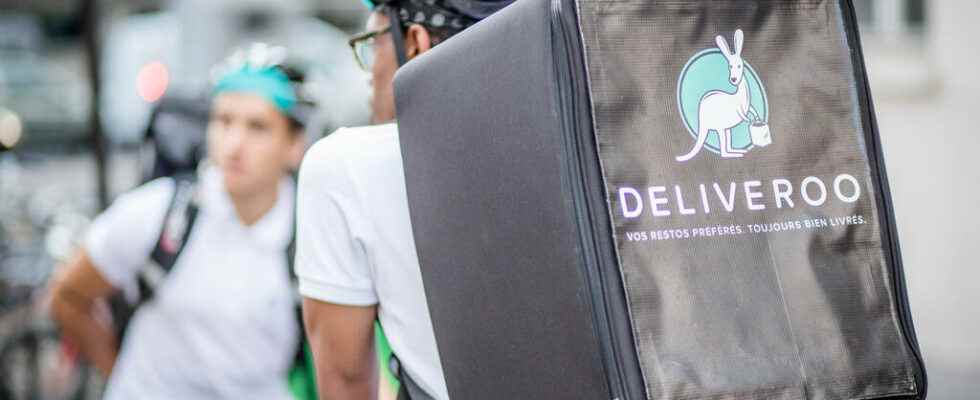This Tuesday, March 8 opens the criminal trial of three former leaders of Deliveroo, the meal delivery platform. They are judged for work » concealed in the period 2015-2017 and suspected of having employed freelance delivery people who should have been salaried.
Was there a relationship of subordination between Deliveroo and the more than 2,000 deliverers working for the platform? This is the main question of this criminal trial. But also that of the abuse by digital platforms of independent status.
Seventy of them filed civil suits. Delivery people working on their own accounts with the status of autoentrepreneurs, but who according to the investigators did not have ” of no freedom in their daily tasks.
► To read also: The EU wants to protect the social rights of workers on platforms like Uber or Deliveroo
Some “ elements made it possible to characterize a sanction system put in place by Deliveroo “, Details a report from the labor inspectorate. When a delivery person was not diligent enough, not productive enough, he was removed from the application.
For the investigators, another sign that Deliveroo was indeed the boss and not a simple service provider: the deliverers did not set their prices, which is however the basis of freelance work. This status used by service platforms is highly contested around the world. In Spain, a law obliging Deliveroo to pay its deliverers was passed last year.
But the British group also won victories. In December, a Belgian court dismissed several dozen couriers, finding that their relationship with Deliveroo could not be reclassified as an employment contract.
► Also to listen: Deliveroo deliverers: rebellion on two wheels
